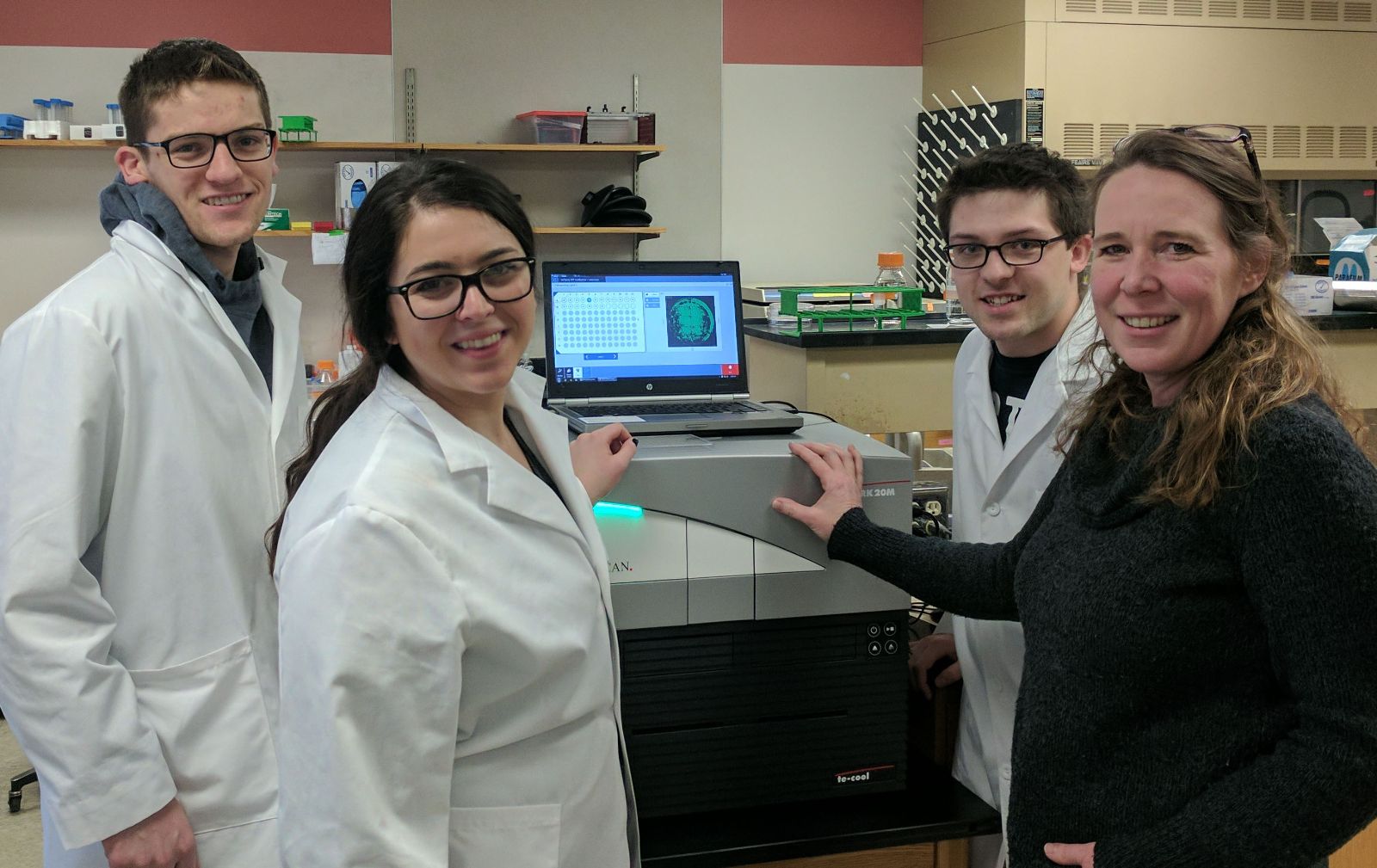Wayne State biology professor earns prestigious NSF Career Award to study bacterial development
 Wayne State University's Penelope Higgs, an assistant professor of Biological Sciences in the College of Liberal Arts and Sciences, has been awarded an Early CAREER Award from the National Science Foundation (NFS) for her work with the soil bacteria termed Myxococcus xanthus. Her continued research will aid in understanding bacterial biofilms and may help in the treatment of diseases caused by pathogenic bacteria.
Wayne State University's Penelope Higgs, an assistant professor of Biological Sciences in the College of Liberal Arts and Sciences, has been awarded an Early CAREER Award from the National Science Foundation (NFS) for her work with the soil bacteria termed Myxococcus xanthus. Her continued research will aid in understanding bacterial biofilms and may help in the treatment of diseases caused by pathogenic bacteria.
"Myxococcus is not a human pathogen, but many bacterial pathogens use similar mechanisms to build biofilms or become persisters. Biofilms and persister cells are more resistant to treatment by antibiotics or actions of the immune system, so it is imperative to understand how these behaviors are regulated," said Higgs.
With her team, Higgs also studies the mechanisms governing Myxococcus behavior as a way to understand how multicellular behavior in higher organisms evolved.
This is the best part of doing science- the thrill of discovery- and it is usually not part of undergraduate laboratory classes.
According to Higgs, cell behavior is controlled by signal transduction proteins that sense information from the environment, such as nutrient availability or the presence of neighboring cells and cause appropriate changes in cell behavior. In many bacteria, signaling proteins are organized into simple linear systems. In multicellular organisms, however, the signaling systems are more complex.
"Myxococcus are bacteria but have a very complex multicellular lifecycle. They also have genes for a large number of different signal transduction proteins. We are investigating how these signaling proteins are organized to coordinate the multicellular behavior in Myxococcus," said Higgs.
Higgs hopes that by studying Myxococcus, it will fill the "missing link" of how signaling systems controlling cells in multicellular organisms, such as humans, evolved from simple bacteria-like ancestors.

As part of the award, Higgs and her team will bring real-life research experiences to undergraduate students in the context of a course-based undergraduate research experience (CURE) laboratory. In this course, students will perform a genetic screen to identify components that are part of the signaling pathways that control cell fate segregation during the developmental phase of the Myxococcus lifecycle. Students will identify genes, make knock-outs, test how the removal of the gene perturbs normal development, and then characterize the proteins.
"This is the best part of doing science - the thrill of discovery - and it is usually not part of undergraduate laboratory classes. This part of the project is really exciting for us and we can't wait to inspire WSU biology students to become the next research scientists."
The NSF award number for this grant is 1651921.
By Carly Adams, College of Liberal Arts and Sciences communications associate